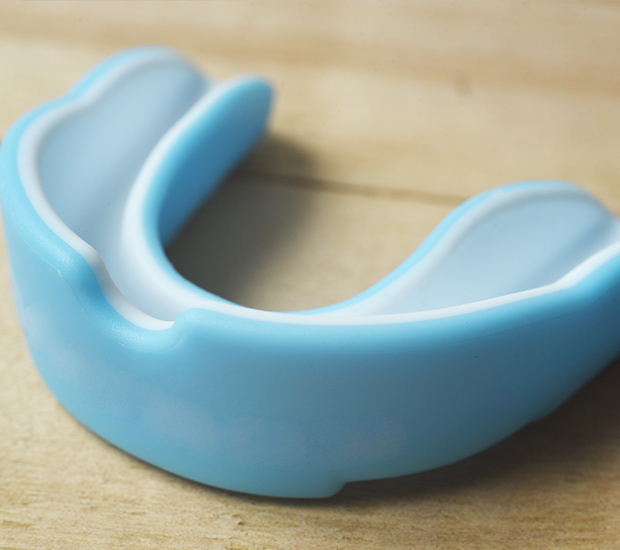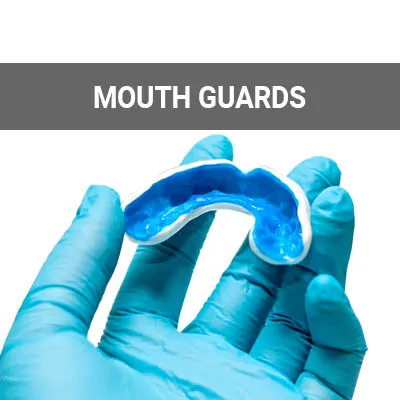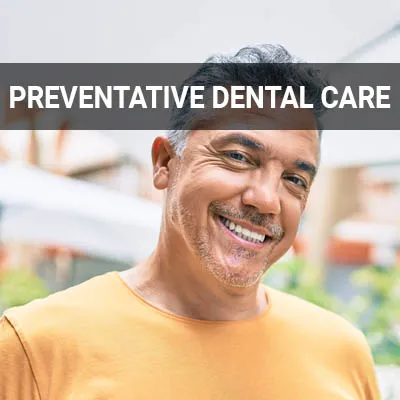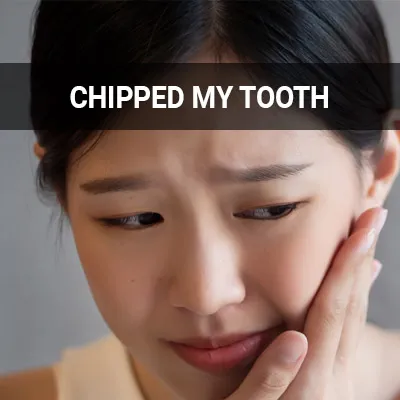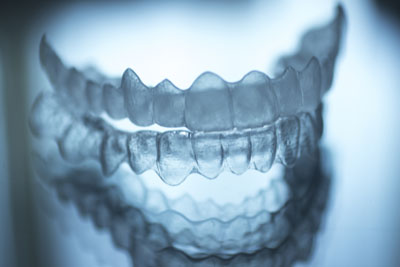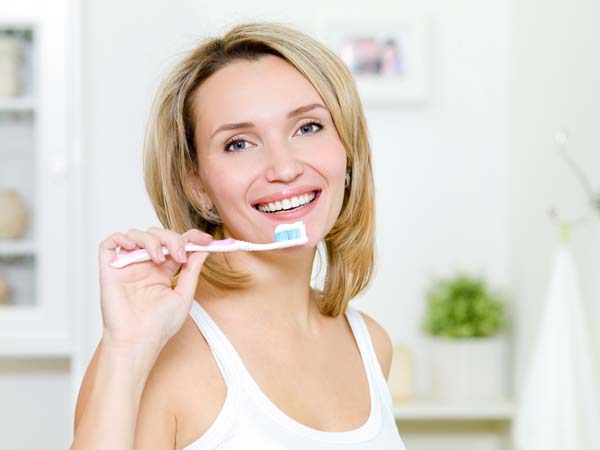Reduce Sports Injuries With Mouth Guards Los Angeles, CA
If you are an athlete, you probably already know how rough it can get out on the field or court. A mouth guard can help prevent unnecessary oral injury. These simple devices slip over the upper teeth to protect them from the surrounding oral tissues.
Mouth guards are available at Dr. Robert B Tamaki, DDS in Los Angeles and the surrounding area. Call us today at (310) 402-0156 to schedule an appointment or learn more about our services.
The Dangers of Not Using a Mouthguard
For more than half a century, the American Dental Association has recommended the use of a properly-fitted mouthguard to reduce the risk of oral injury while participating in sports. Although mouthguards do not guarantee someone will not sustain an oral injury, athletes become 60 times more likely to get hurt when not wearing one. Hard hits and flying projectiles can all translate into a nightmare for the teeth and jaw.
A custom-fitted mouthguard, worn over the top teeth, protects the teeth from the surrounding soft tissue, absorbs shock, and stabilizes the jaw during a hit. Consider many risks associated with not wearing a mouth guard, including broken or lost teeth, jaw injuries, lacerated lips and cheeks, and damage to orthodontic appliances.
Broken or Lost Teeth
Teeth, although hard, can break. Playing sports without a proper mouthguard leaves the teeth at risk of taking a hard blow without any cushion. This can cause teeth to crack, fracture, or even fall out completely. A cracked or damaged tooth signifies a severe dental emergency.
Jaw Injuries
Jaw injuries commonly occur in sports. Mouthguards prevent or greatly reduce their seriousness by cushioning the jaw and reducing the amount of shock it takes during a hit. Teeth, designed to chew food, can also do damage to the soft tissues of the mouth when left uncovered. A mouthguard can help protect the mouth from punctures or lacerations.
Damage to Orthodontic Appliances
Braces or other orthodontia present a unique challenge that only a custom-fit mouthguard done at a dentist's office can address. This type of mouthguard can be made for the upper and lower teeth. It will not only protect the teeth but also prevent the metal wires and brackets from potentially ripping into the soft tissues of the mouth.
“Hard hits and flying projectiles can all translate into a nightmare for the teeth and jaw.”
The Risks of Store-Bought Alternatives
Not all sports mouthguards are created equally. A custom mouth guard fitted by a dentist will provide the most protection as it offers a tailored fit for the unique shape of the upper teeth. This level of smile security cannot be matched by a generic mouthguard found at a sporting goods store.
Stock and boil and bite mouthguards take the "one size fits all" approach to protecting the teeth and jaws. As a result, they remain uncomfortable and make it difficult for players to breathe or talk. Generic mouthguards tear easier, do not fit correctly, and consist of a weaker material, which are not enough when playing contact sports.
An investment in a custom-fit mouthguard also represents an investment in an athlete's long-term oral health. The materials used remain durable, yet still allow the athlete to breathe and talk with ease. However, using a temporary mouth guard while waiting for a custom one remains better than not wearing one at all.
“Stock and boil and bite mouthguards take the ‘one size fits all’ approach to protecting the teeth and jaws.”
Long Term Effects of Orofacial Trauma from Sports
Though it is difficult to obtain statistics on sports-related dental injuries, some studies estimate that up to 80% of participants sustain some form of dental injury. While such injuries are not usually life-threatening, they may still be incredibly painful and have long-term effects on one's oral health. As such, it is essential for athletes to seek professional help right away after an accident.
Both contact and non-contact sports carry with them their own sets of risks. Consequently, athletes should always wear mouth guards, no matter what sports they play. The most common types of orofacial trauma include soft tissue injuries, tooth fractures, tooth avulsions, and tooth subluxations – all of which may lead to disastrous oral health problems.
“Both contact and non-contact sports carry with them their own sets of risks.”
Check out what others are saying about our dental services on Yelp: Reduce Sports Injuries With Mouth Guards in Los Angeles, CA
A Better Fit and Design
A mouthguard designed and created in a dental office represents the most durable and protective option. Our dentist will evaluate an athlete's individual needs and customize a mouthguard. This can include providing extra space for growing teeth and jaws — something that just cannot be duplicated with a generic mouthguard.
First, the dentist creates the impression of the teeth that will be used to create the actual mouthguard. From there, the dentist trims, polishes and checks for the proper fit. A properly fitting mouthguard offers a protective, odorless and tasteless option with sufficient thickness in critical areas.
Each mouthguard, tailored to the individual athlete, offers thickness and design to promote comfort and sufficient protection. Thanks to its quality construction, this type of mouthguard can stand up to the rigors of any contact sport. Parents can rest easy knowing they have provided their athlete with the right product to protect their mouth and teeth.
“A mouthguard designed and created in a dental office offers the most durable and protective option.”
Questions Answered on This Page
Q. What are the dangers of not using a mouthguard?
Q. What are the risks of using a store-bought mouthguard?
Q. What makes custom-fitted mouthguards better?
Q. How common are sports-related dental injuries?
People Also Ask
Q. How is a custom mouth guard made?
Q. What is the difference between mouth guards and night guards?
Frequently Asked Questions
Q. How long do mouth guards last?
A. It depends on how frequently you use it. However, with proper care, a custom-made mouth guard should last several years. Store-bought ones tend to be less durable, as they are not tailored for the mouth. Remember to bring your mouth guard with you to your dental checkups for regular inspection.
Q. How can I get a mouth guard?
A. Call us today, and we will schedule you for an initial consultation. We can begin the process of creating a dental mouth guard once we determine your candidacy. You will need to first undergo a physical examination and get some impressions taken of your mouth.
Q. What are mouth guards made of?
A. The answer varies on a case-by-case basis. Many mouth guards are made of acrylic, while others are made of acetate, vinyl, or rubber. Mouth guards may also be made of a combination of two or more of the above. We combine both hard and soft elements to ensure durability and comfort.
Q. How should I clean my mouth guard?
A. It is essential to clean your mouth guard regularly. First, rinse in warm water to get rid of any plaque and debris. Then, brush the mouth guard with a soft-bristled toothbrush. Do not use toothpaste, as it may be too abrasive. Let the mouth guard air dry completely to prevent rapid bacterial growth, and always store it in a case when not in use.
Q. Can I wear a mouth guard even if I have braces?
A. Yes. We can devise special mouth guards for persons with orthodontic devices or fixed dental work. It is crucial for these patients to adequately protect the mouth, lest the teeth suffer orofacial damage leading to soft tissue injuries.
Family Dental Terminology
Learn More About Custom Mouthguards for Sports
A custom-fit mouthguard represents a vital piece of protective equipment for any athlete. To schedule an appointment, call us at 310-402-0156 to let Dr. Robert B Tamaki, DDS in Los Angeles for more assistance.
Helpful Related Links
- American Dental Association (ADA). Glossary of Dental Clinical Terms. 2024
- American Academy of Cosmetic Dentistry® (AACD). Home Page. 2024
- WebMD. WebMD’s Oral Care Guide. 2024
About our business, license, and website security
- Dr. Robert B Tamaki, DDS was established in 1985.
- We accept the following payment methods: Cash, CareCredit, Check, MasterCard, and Visa
- We serve patients from the following counties: Los Angeles County
- We serve patients from the following cities: Los Angeles, Santa Monica, Venice, Marina Del Rey, Redondo Beach, Hermosa Beach, Manhattan Beach, and Westchester
- CA (License #DDO-33386). View License Information and Specifics
- National Provider Identifier Database (1568559011). View NPI Registry Information
- Healthgrades. View Background Information and Reviews
- Norton Safe Web. View Details
- Trend Micro Site Safety Center. View Details
Back to top of Reduce Sports Injuries With Mouth Guards
